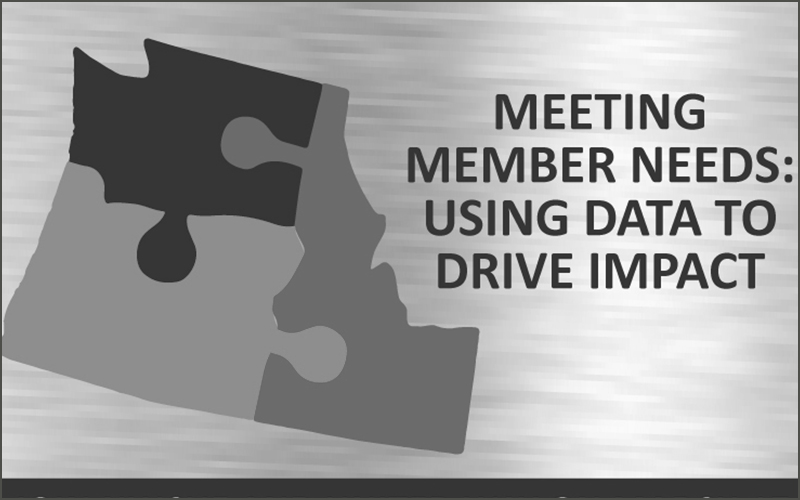Foundation News
Equipped with Data, Credit Unions Are Empowered to Drive Meaningful Change
Posted by Ben Shuey on March 9, 2021

3/9/2021
The financial health of members and communities is a central focus of the credit union industry. To better understand and serve the Northwest, credit unions are looking to their community partners for local data and insights that will help them adapt their financial services to better meet member and community needs.
The United Way’s annual state-by-state ALICE reports provide much of that valuable data. Each report closely examines current economic conditions for the population that falls within the Asset Limited, Income Constrained, Employed (ALICE) index in Idaho, Oregon, and Washington. It offers insight into the hardships people face when they do not earn enough to afford their basic needs, from childcare and housing, to transportation, healthcare, and more.
On March 17, credit union professionals will gather to learn about the latest ALICE reports and how they may utilize the data to identify opportunities within their own communities. The Northwest Credit Union Foundation is partnering with United Way to present relevant Northwest data and host state-specific breakout discussions during the event, Meeting Member Needs: Using Data to Drive Impact.
Putting ALICE Data to Work
Peninsula Community Federal Credit Union, based in Shelton, Washington, has used ALICE data extensively to support the credit union’s efforts as a CDFI, said President and CEO, Jim Morrell.
“Combining ALICE data and empathy mapping, our team created a persona for the target audience that we utilize to assess all of our decisions about products and services. The persona is named ‘ALICE Pearl,’ Morrell explained. “The part of ALICE we focus on are those households making at or around a household survival budget, which in Mason and Jefferson Counties, is about $50,000 income per year per household. Pearl is the name of a single mom who our community financial educator met through our partnership with a local non-profit. Over time working with her to build a budget, she was able to save enough money to eventually buy a home.”
ALICE data has assisted Peninsula in playing a key leadership role in helping low- to moderate-income, unbanked, and underbanked people, Morrell explained.
“ALICE data helps provide a clear picture of the realities people face in their financial lives. ALICE data has been extremely valuable to share during public meetings and community dialogue,” he said.
In addition, the data provides “factual information that demonstrates that 41% of the households in Mason County (45% in the city of Shelton) are living at or below a household survival budget,” Morrell added.
Rivermark Community Credit Union, based in Beaverton, Oregon, has found ALICE data to be particularly helpful in understanding the needs of the community and of its own credit union staff members.
“I believe the first reaction most credit unions encounter is questioning whether our own employees fall within the ALICE index,” said Seth Schaefer, President and CEO. “In our case, we do have employees whose income levels would place them within the index, which prompted action to create more financially empowered employees.”
Sharing the data with the credit union’s Board of Directors and employees opened the door for important conversations, Schaefer said.
“The report states that ‘Financial instability leads to failure to pay bills on time and leads to fees, penalties, and low credit scores.’ These kinds of problems are best tackled by the mindset of ‘what role do we play in the solution?’ to ensure that we are not exasperating the problem.”
WSECU, based in Olympia, Washington, is a supporter of the ALICE report for Washington. The credit union has historically used ALICE reports to inform internal messaging for its employee giving campaigns, said Linsey Lee, Community Engagement Coordinator.
“The ALICE report is useful for communities to gain a better understanding of their struggling residents impacted by what can be hidden poverty,” Lee said. “It provides insights into the reality of financial insecurities that aren’t always obvious. ALICE sheds light on this specific demographic which are families struggling to make ends meet. It offers an opportunity to better understand the needs in our communities that require collective solutions.”
Credit union professionals interested in attending Meeting Member Needs: Using Data to Drive Impact may register online. The event will run from 9:30 to 11 a.m. PDT, 10:30 a.m. to 12 p.m. MDT, on March 17. Questions may be directed to Claire Hendrix, Northwest Credit Union Foundation Program Director.
The Northwest Credit Union Foundation serves as a partner to credit unions, providing them with resources that help amplify their community impact. Throughout 2021, NWCUF will continue to provide opportunities for credit unions to come together to discuss their communities’ needs and collaborate on solutions.
Posted in Community Impact.
